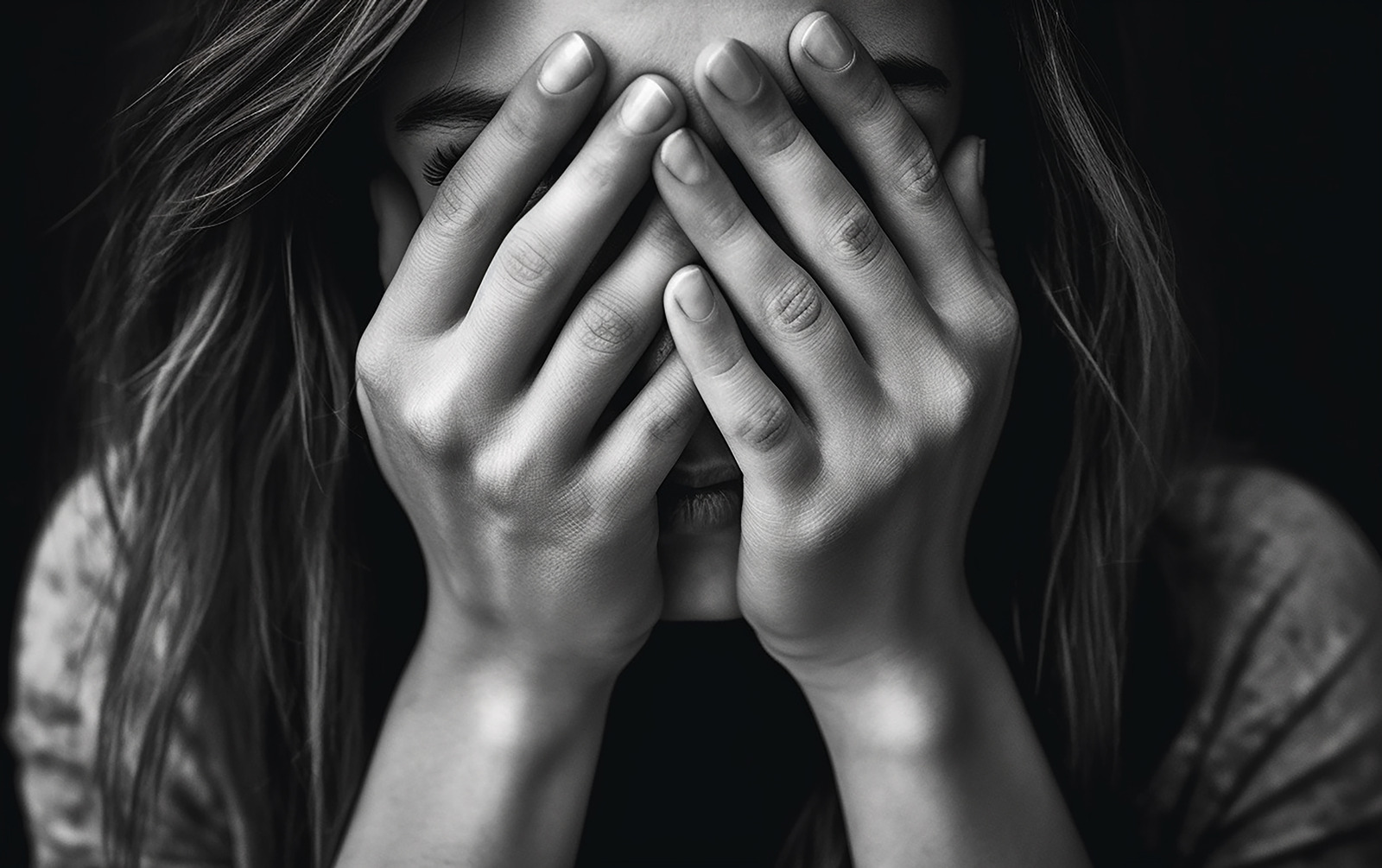
Table of Contents
- What Is Psychosis?
- 3 Phases of Psychosis
- The 5 Stages of Psychosis
- What Is First Episode Psychosis?
- Causes of Psychosis
- Drug-Induced Psychosis
- Co-Occurring Psychotic Disorders and Substance Use Disorders
- How Is Psychosis Treated?
- Life after Psychosis (Long Term Management)
- Supporting a Loved One Managing Psychosis – Practical Tips for Caregivers
Key Points
- Psychosis is when people experience something that isn’t happening in reality.
- The main symptoms of psychosis are delusions, hallucinations, and disordered thoughts.
- Psychosis is often described as having three main phases: the prodromal phase, the acute phase, and the recovery phase.
- Some frameworks propose more detailed stages to capture the full spectrum of the psychotic experience, from early symptoms to full recovery.
- 💡 If you or a loved one are in crisis, contact a mental health professional or call/text the Suicide & Crisis Lifeline at 988.
Psychosis is a condition that distorts reality, often causing distressing experiences like hallucinations or delusions. Understanding its phases can lead to earlier diagnosis and better recovery outcomes.
Learn more about psychosis, the 5 stages of psychosis, the 3 phases of psychosis, the symptoms, and why early detectediong and treatment is critical to a positive outcome.
What Is Psychosis?
Psychosis is a collection of symptoms that affect the mind and cause a loss of contact with reality. During a psychotic episode, a person’s thoughts and perceptions are disrupted, and they may struggle to recognize what’s real and not.
The main symptoms of psychosis are:[1]
- Hallucinations: Seeing or hearing things that are not there, or in some cases, smelling, feeling, or tasting things that are not there. These hallucinations can feel real to the person experiencing them.
- Delusions: Having strong personal beliefs that are not shared by others, such as believing there is a conspiracy to cause them harm.
- Disordered thinking: This involves ideas and thoughts that occur quickly, causing fast and confusing speech that’s hard to follow.
Some of the signs of psychosis can include:
- Paranoia or suspicion,
- Trouble thinking clearly and logically,
- Withdrawing from social situations and self-isolating,
- Expressing unusual or intense ideas, strange feelings, or no feelings at all,
- Neglecting self-care or hygiene,
- Disruption in sleep patterns,
- Difficulty distinguishing reality from fantasy,
- Confusing speech or difficulty communicating,
- Poor performance in work or school.
The symptoms of psychosis are part of a psychotic episode. This can involve unpredictable behaviors that may cause the person to harm themselves or become violent toward others.
3 Phases of Psychosis
There are generally three phases of psychosis: the prodrome phase, the acute phase, and the recovery phase.[2]
Prodrome Phase
During the prodrome stage of psychosis, the early signs may be subtle. There may be small shifts in the way people describe their thoughts and perceptions, which may change over time. The signs can vary from person to person but may include:
- Depressed mood
- Decreased motivation
- Poor concentration
- Anxiety
- Sleep disturbances
- Social withdrawal
- Suspiciousness
- Poor functioning
- Withdrawal from family and friends
- Increased delusional or magical thinking
Acute Phase
The acute stage is when recognizable symptoms of psychosis come on. Recognizable signs like hallucinations, delusions, or disordered thinking are obvious to others. The person may become extremely distressed and behave out of character, perhaps acting violently or threateningly toward others.
Recovery Phase
With early treatment, people can recover from their first episode of psychosis and may never experience another. Sometimes, signs from the acute stage can linger into recovery, but they’re not as prominent or concerning. With treatment, they can fade, and the person returns to everyday life.[3]
The 5 Stages of Psychosis
Emerging research suggests that the 3 phases of psychosis are incomplete and don’t address the full experience for people with psychosis.
Though the exact process is different for everyone, the 5 stages of psychosis include:[4]
Stage 1: Early Stage
The early stage of psychosis has subtle changes in behavior, such as missing appointments or saying illogical things. Symptoms can differ from person to person but may include:
- Becoming irritated more quickly
- Feeling depressed
- Being hyperactive or excited
- Hearing, feeling, smelling, tasting, or seeing things that aren’t there
Stage 2: Being Overwhelmed by the Psychosis (Acute or Crisis Phase)
If the early symptoms of psychosis are intense, they can develop into a psychotic episode. The person becomes absorbed in their own inner world and disconnects from other people, often needing more immediate care.
This is when the acute phase or crisis phase of psychosis may take effect.
The symptoms can vary but may include:
- Experiencing unwanted, extreme, or bizarre thoughts
- Disorientation and severe confusion
- Intense hallucinations, paranoia, and feelings of extreme anxiety
- Risk of self-harm or harming others
- Complete detachment from reality including believing in elaborate conspiracies or thinking external forces or powers have an influence
- Suicidal ideation or other potentially dangerous behavior
Immediate medical intervention, hospitalization, or crisis services may be necessary for someone experiencing the acute or crisis phase of psychosis.
If you or someone you know is in danger, call 988 for immediate support.
Stage 3: Struggling with Psychosis Vulnerability
Once the psychotic episode is over, the person is mentally vulnerable and may feel guilty or embarrassed. Getting back on track with life can be particularly challenging.
There are no specific symptoms during this period, but there may be conflict or denial. Friends and family may be nervous or avoidant. The person must get help to move forward and prevent future psychotic episodes.
Stage 4: Living with Psychosis Vulnerability
In the aftermath of psychosis, the person may pull back from loved ones and realize that life may not be the same. If they’ve sought help, medication and therapy can help establish a “safe zone” and adapt to life in a different way.
Stage 5: Life Beyond Psychosis
In recovery, the person has a firm understanding of how psychosis develops and what can be done to prevent it from occurring in the future. Managing stress and anxiety is important for preventing relapse and maintaining resilience.
Essentially, stage 5 is when someone regains control of their life and has control over their psychosis, the psychiatric process, their medication, and their treatment and therapy options.
What Is First Episode Psychosis?

Unfortunately, the first episode can be misinterpreted as a fluke, so people may delay treatment. Early, effective treatment is the best way to prevent chronic psychosis because the longer it’s untreated, the greater the disruption to the person’s life.
Without treatment, the problems associated with psychosis may intensify, including sleep disturbances, poor job performance leading to job loss, severe depression, legal problems, self-injury, and substance abuse.
Causes of Psychosis
Psychosis isn’t a diagnosis in itself but a collection of symptoms that may be associated with several mental health conditions:[5]
- Schizophrenia: A psychiatric disorder characterized by symptoms such as hallucinations and delusions.
- Bipolar disorder: A mood disorder characterized by significant fluctuations in mood, ranging from depressive episodes to manic or hypomanic episodes.
- Severe depression: In some cases, depressive disorders can have symptoms of psychosis that occur with severe depression.
Psychosis can also be triggered by:
- Drug use
- Alcohol use
- Stress
- Trauma
- Some prescribed medications
- Physical conditions like brain tumors or dementia
- Head injuries
- Childbirth
The duration and severity of psychotic episodes can vary by the underlying cause. For example, psychosis associated with bipolar disorder may only occur during the manic phase for weeks or months, while psychosis associated with schizophrenia may last six months or longer.
Drug-Induced Psychosis
Several drugs are associated with drug-induced psychosis. This can happen while using the drug, but it’s often during the withdrawal period. In rare cases, psychosis can occur once the drug is out of the system.
The duration of drug-induced psychosis varies by the substance:[6]
- Methamphetamine: Meth psychosis can vary in duration. It may last from a few hours to several days, and in cases of withdrawal, psychosis symptoms can persist for up to a week or longer after cessation. When meth has severe effects on the brain, psychosis can happen long after the person stops taking it.
- Marijuana: Though rare, marijuana has been associated with psychotic events and an increased risk of schizophrenia. The duration of psychosis with marijuana is not well researched, but it can happen in the long term.
- Alcohol: Alcohol-induced psychosis can happen with chronic alcohol use, either while using alcohol or during the withdrawal period. In some cases, psychosis can happen long after alcohol use has stopped.
- Opiates: Opiates can induce psychosis, particularly during withdrawal. It often lasts as long as the drug is detectable but typically subsides after the drug has cleared the system.
Co-Occurring Psychotic Disorders and Substance Use Disorders
Co-occurring disorders refer to the presence of a mental health condition and substance use disorder. Psychotic disorders, such as schizophrenia and schizoaffective disorder, often co-occur with substance use disorders.
Serious mental illnesses, such as major depression and bipolar disorders that are risk factors for psychosis, also have high rates of co-occurrence with substance use disorder.
Regardless of the two specific conditions, co-occurring disorders require integrative mental health treatment to successfully treat both. These conditions influence and exacerbate one another, so they must be treated simultaneously instead of individually.
How Is Psychosis Treated?
The treatment for psychosis depends on its cause, but it may include:
- Antipsychotic medication to relieve the symptoms
- Talk therapy or behavioral therapies
- Family therapy with partners and family members
- Social support to help with education or employment
Some people may need medication and therapy long-term, while others may be able to reduce their medication use over time if symptoms improve. If the psychotic episodes are severe, the person may need to be admitted to a psychiatric hospital.
Life after Psychosis (Long Term Management)
Recovery doesn’t end when symptoms fade. Managing psychosis long-term involves recognizing early warning signs, creating support networks, and staying committed to therapy or medication. There are some practical steps one can take as part of long term management, including:
- Developing a structured daily routine
- Engaging in mindfulness, meditation, or relaxation exercises
- Maintaining regular therapy sessions (CBT, family therapy)
- Avoiding alcohol and substance use, as these can often trigger relapse
- Strengthening relationships with family and friends to build a support system
Treatment plans for managing and living with psychosis should always be conducted with a trained medical professional.
Supporting a Loved One Managing Psychosis – Practical Tips for Caregivers
Some ways you may be able to help at different stages of psychosis include:
- Providing comfort without debating symptoms
- Helping to identify stressors, and encourage distraction techniques like music or light exercise.
- Reduce environmental stress and support medication adherence.
- Maintaining clear, calm communication during any episodes
- Trying to focusing on emotions rather than challenging beliefs during an episode.
- Setting firm but compassionate boundaries
- Encouraging routine and stability
- Discourage substance use
Frequently Asked Questions
OCEAN RECOVERY EDITORIAL GUIDELINES
The internet contains a vast amount of misinformation, but when it comes to your health only peer reviewed, research centered data matters. At Ocean Recovery, all content published throughout our website has been rigorously medically reviewed by a doctorate level clinician, and cross checked for medical accuracy. Our editorial process helps our readers trust that the information they are consuming is factual and based upon scientific data. Your health is our top priority, find out more about how we safeguard the integrity of information on our website. Read More About Our Process




